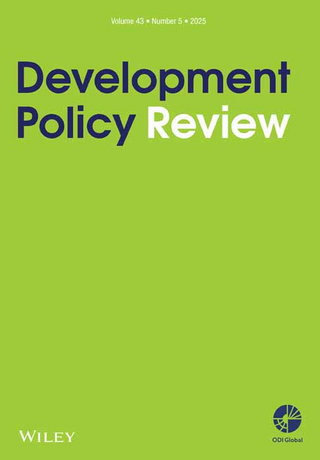
Foreign aid transparency amid politicization
Janus, Heiner / Tim RöthelExternal Publications (2025)
in: Development Policy Review 43 (5), article e70038
DOI: https://doi.org/10.1111/dpr.70038
Open access
Motivation: In recent years, foreign aid donors have tried to becomemore transparent, often by sharing information digitally. However,the politicization of individual aid projects has resulted in biasedreporting, raising doubts about the legitimacy of aid in general. Wetherefore examine whether increased transparency leads to greatergovernment effectiveness and public trust. Purpose: Government agencies typically assume that greatertransparency in public administration improves understanding ofbureaucratic actions, thereby fostering trust in the government. Inforeign aid, openness is believed to enhance public confidence andimprove the effectiveness of governments. However, recent publicand political reactions to the disclosure of aid information cast doubton these optimistic assumptions. Approach and methods: Using our sender-mediator-receiver modelof a “fragile transparency loop,” we analyse how communicationbreaks down in German foreign aid. First, we focus on Germany as adonor that shares information through a digital transparency portal,examining the sender side. Second, we investigate the mediator sideby conducting a qualitative content analysis of German online mediaarticles. Third, we examine the receiver side by disaggregating theGerman public into several subgroups. Findings: Our empirical findings suggest that, while donors assumea virtuous transparency loop, the reality can resemble a fragiletransparency loop that is easily disrupted. The government maywithhold information; mediators may spread misinformation; and thepublic may not receive information neutrally. These dynamics explainwhy, despite increasing transparency, donors may not achieve theintended increases in government effectiveness and public trust. Policy implications: Donors should find a balanced approach toforeign aid transparency that upholds democratic accountabilitywhile avoiding information overload. Aid bureaucracies should tailortheir disclosure to serve different audiences, including professionalswith development expertise and the wider public, who may havepreconceptions or be uninformed about foreign aid.


